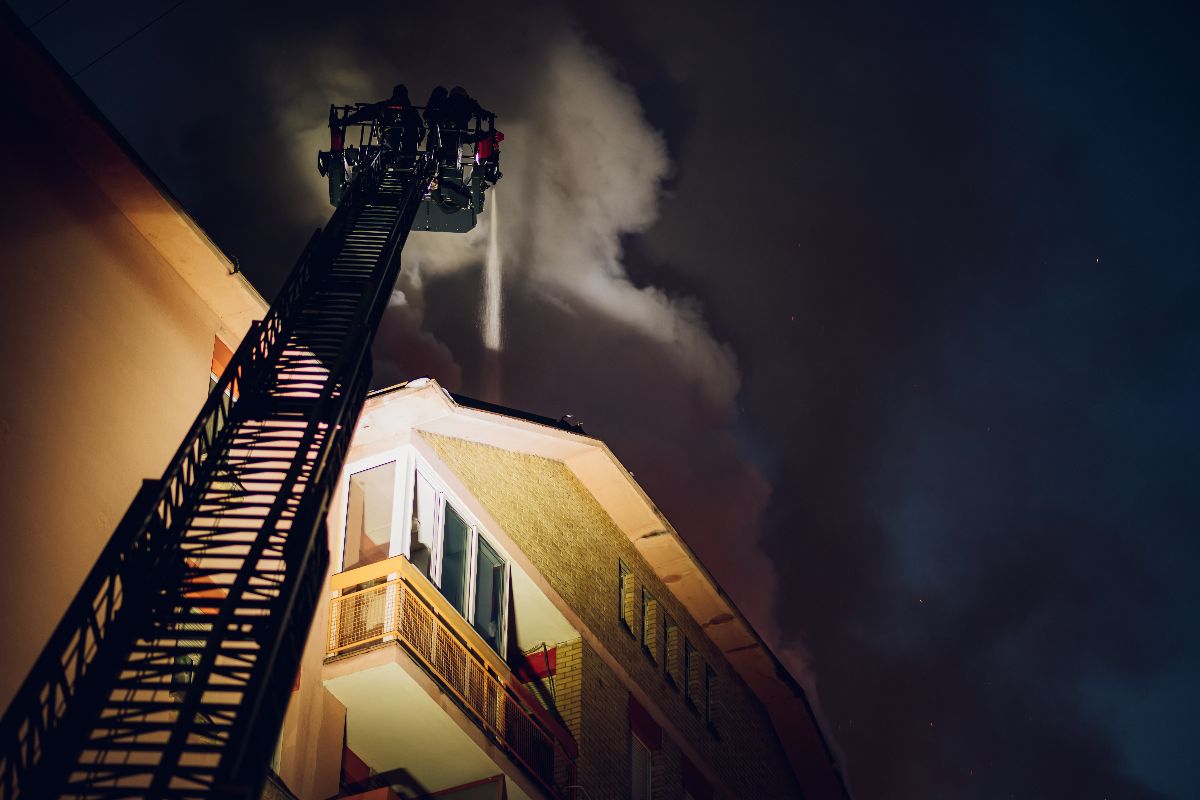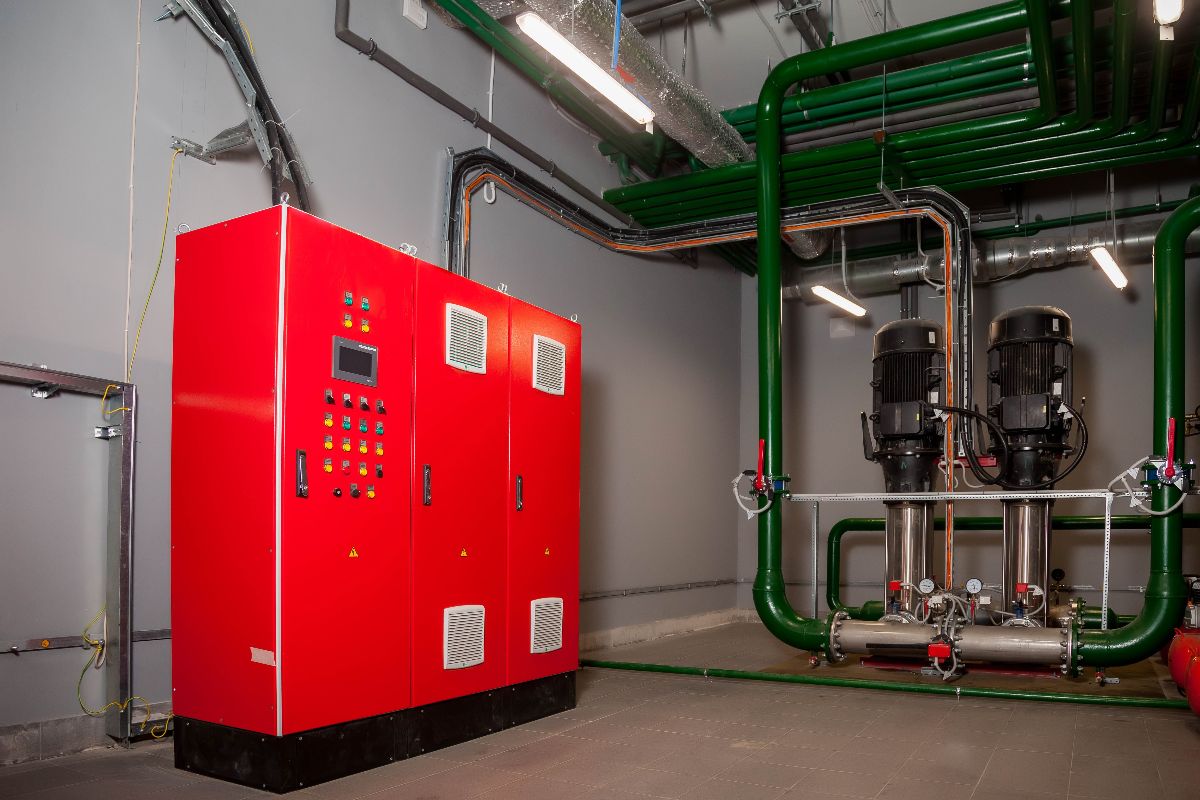How to Choose the Right Fire Alarm for Your Building
 April 3, 2024
April 3, 2024

How to choose the right fire alarm for your building?
- Consult a fire alarm specialist
- Assess your building’s needs
- Determine the risks and hazards
- Understand the fire alarm system
- Think about the long-term cost
Overview
- Fire alarm systems are designed to detect signs of fire, such as smoke or heat, at their earliest stages.
- The ideal fire alarm system considers your building’s size, floors, and layout to ensure optimal fire protection.
- By working closely with a fire alarm specialist, determining risks and hazards, and understanding the types of fire alarm systems you can choose a fire alarm system that meets your building’s unique need.
Fire spreads quickly and can have devastating consequences, unlike other emergencies. Choosing the right fire alarm for your building is crucial. A reliable fire detection and alarm system is your first line of defense. This advanced system is designed to detect the earliest signs of fire and raise immediate alerts, giving you precious time to evacuate and save lives.
In this article, we will explore key factors to consider when selecting a fire alarm system that can save lives and protect property. Read on to learn more!
Consult a Fire Alarm Specialist
The Bureau of Fire Protection reported that residential fire incidents surged up 25% in the first two months of this year.
The importance of selecting the right fire alarm system cannot be overstated. Consulting with a specialist can minimize such incidents by customizing a system to your exact needs, eliminating unnecessary features.
In instances of malfunction or during building renovations, they can diagnose issues and propose solutions, including potential system upgrades, if needed. This ensures that your fire alarm system remains in optimal condition, safeguarding your property and occupants effectively.
Assess your Building’s Needs

High-risk buildings or those with limited onsite staff may benefit from monitoring systems that automatically contact emergency services. Conversely, lower-risk buildings with ample occupants may find non-monitored systems, which provide direct occupant alerts, to be sufficient.
Additionally, the size and layout of a building significantly influence the choice of fire alarm system. While larger or more complex structures may benefit from sophisticated addressable systems for enhanced control and zone identification, smaller buildings might be adequately served by simpler conventional systems.
To ensure effective detection, address diverse fire hazards by strategically placing the appropriate detectors, such as smoke or heat sensors, based on thorough risk assessments.
Determine the Risks and Hazards
It’s vital to thoroughly assess the risks and hazards specific to your environment. It helps identify potential fire hazards and understand the nature of these risks. For instance, the presence of a kitchen and electrical equipment poses heightened fire risks compared to other areas of your building.
Understanding these risks enables the selection of the most suitable fire alarm system components, such as smoke detectors, heat sensors, or manual call points, strategically placed to maximize detection efficiency.
Furthermore, consideration of occupant characteristics, building layout, and emergency response requirements inform the choice of alarm system.
Understand the Fire Alarm System

Comprehending the various components and functionalities of fire alarm systems allows for informed decision-making. This includes understanding different types of detectors, such as smoke, heat, or carbon monoxide sensors, and their specific applications in detecting various fire hazards.
Additionally, understanding the communication protocols, alarm notification methods, and system integration capabilities helps in choosing a system that aligns with the building’s specific requirements.
This enables proper maintenance and troubleshooting, ensuring its reliability and effectiveness over time. Building occupants and staff can be adequately trained in how to respond to alarm signals and evacuate safely in the event of a fire.
Think About the Long-term Cost
A well-chosen fire alarm system can minimize the risk of property damage, potential injuries, and even loss of life in the event of a fire. It can facilitate swift evacuation by promptly detecting and alerting occupants during a fire, mitigating the extent of damage and associated costs.
By conducting a thorough assessment of your building’s layout, occupancy, and potential fire hazards, you can ensure that your chosen system provides adequate coverage without unnecessary features.
This targeted approach not only optimizes the effectiveness of the system. It also avoids overspending on components or functionalities that may not be essential for your building.
Key Takeaway
Choosing the right fire alarm for your building is an essential component of any emergency response plan. They provide immediate alerts, guide evacuations, facilitate communication with emergency services, and minimize the risk of property damage.
Industrial PH, your trusted supplier for fire detection and alarm systems in the Philippines, prioritizes your resilience. We equip buildings with top-tier fire detection, protection, and suppression systems, minimizing damage and keeping occupants safe. Contact us now to get a quote.



